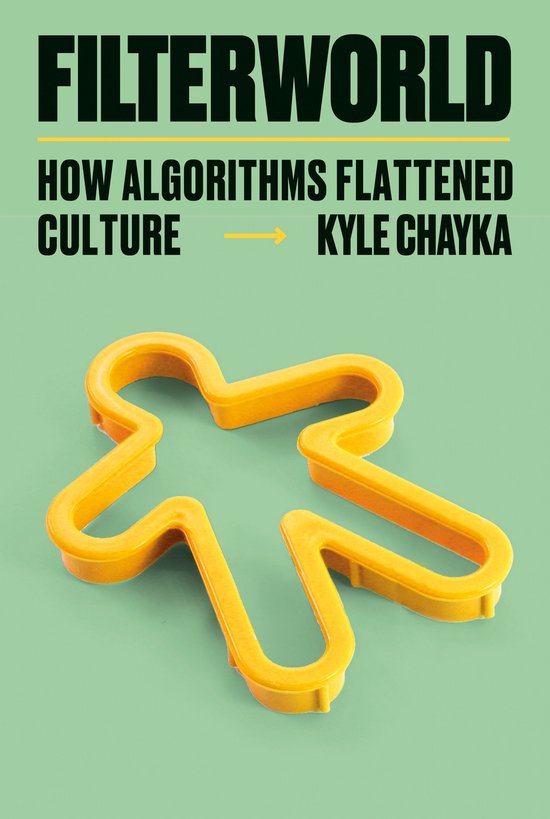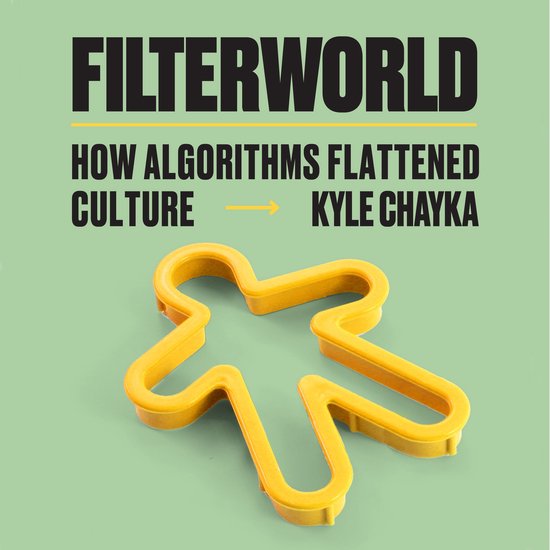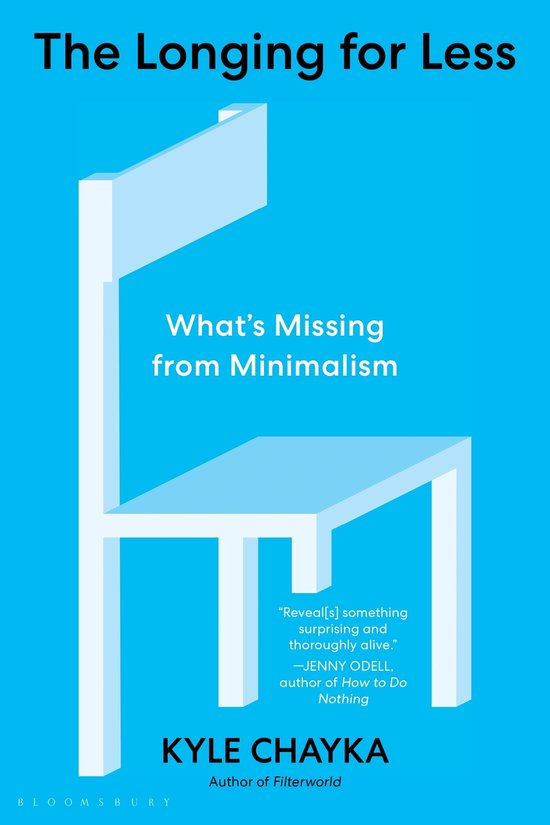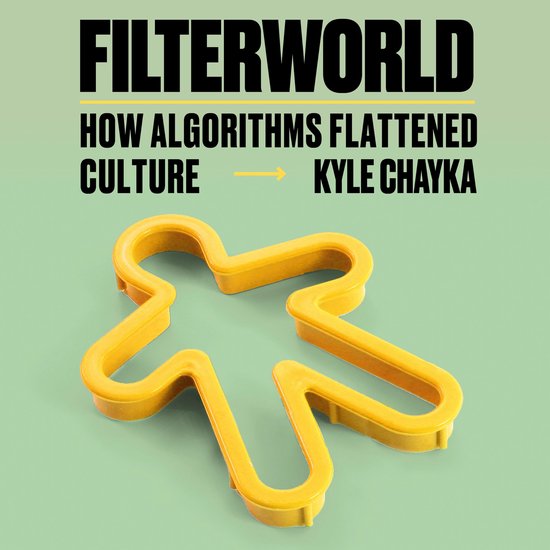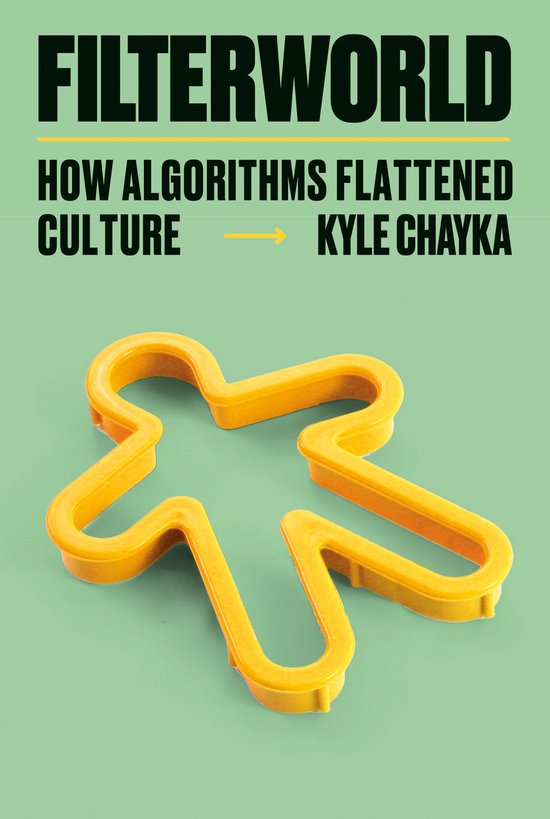
Filterworld
From New Yorker staff writer and author of The Longing for Less Kyle Chayka comes a timely history and investigation of a world ruled by algorithms, which determine the shape of culture itself.
From coffee shops to city grids to TikTok feeds the world round, algorithmic recommendations dictate our experiences. The algorithm is present in the neon signs and exposed brick of an Internet cafe in Nairobi, and the skeletal, modern furniture of an Airbnb in Portland. Over the last decade, this network of mathematically determined choices has taken over, almost unnoticed, as weve grown increasingly accustomed to an insipid new normal. But to have our tastes, behaviors, and emotions governed by computers, while convenient, does nothing short of call the very notion of free will into question.
This ever-tightening web woven by algorithms is called Filterworld. Kyle Chayka shows us how online and offline spaces alike have been engineered for seamless consumption, becoming a source of pervasive anxiety in the process. Users of technology have been forced to contend with data-driven equations that try to anticipate their desiresand often get them wrong. What results is a state of docility that allows tech companies to curtail human experienceshuman livesfor profit.
The evidence of Filterworlds flattening of culture is everywhere, from plastic surgery-enabled Instagram Face to popular songs that use the same palette of hushed voices and synthesizers. The lowest common denominator is promoted at the expense of what is complex, diverse, or challenging.
In Filterworld, Chayka traces this creeping, machine-guided curation as it infiltrates the furthest reaches of our digital, physical, and psychological spaces. With algorithms increasingly influencing not just what culture we consume, but what culture is produced, urgent questions arise: What happens when shareability supersedes messiness, innovation, and creativitythe qualities that make us human? What does it mean to make a choice when the options have been so carefully arranged for us? Is personal freedom possible on the Internet?
To the last question, Filterworld argues yes. But in order to escape Filterworld, and to transcend it, we must first understand it.
From coffee shops to city grids to TikTok feeds the world round, algorithmic recommendations dictate our experiences. The algorithm is present in the neon signs and exposed brick of an Internet cafe in Nairobi, and the skeletal, modern furniture of an Airbnb in Portland. Over the last decade, this network of mathematically determined choices has taken over, almost unnoticed, as weve grown increasingly accustomed to an insipid new normal. But to have our tastes, behaviors, and emotions governed by computers, while convenient, does nothing short of call the very notion of free will into question.
This ever-tightening web woven by algorithms is called Filterworld. Kyle Chayka shows us how online and offline spaces alike have been engineered for seamless consumption, becoming a source of pervasive anxiety in the process. Users of technology have been forced to contend with data-driven equations that try to anticipate their desiresand often get them wrong. What results is a state of docility that allows tech companies to curtail human experienceshuman livesfor profit.
The evidence of Filterworlds flattening of culture is everywhere, from plastic surgery-enabled Instagram Face to popular songs that use the same palette of hushed voices and synthesizers. The lowest common denominator is promoted at the expense of what is complex, diverse, or challenging.
In Filterworld, Chayka traces this creeping, machine-guided curation as it infiltrates the furthest reaches of our digital, physical, and psychological spaces. With algorithms increasingly influencing not just what culture we consume, but what culture is produced, urgent questions arise: What happens when shareability supersedes messiness, innovation, and creativitythe qualities that make us human? What does it mean to make a choice when the options have been so carefully arranged for us? Is personal freedom possible on the Internet?
To the last question, Filterworld argues yes. But in order to escape Filterworld, and to transcend it, we must first understand it.
| Auteur | | Kyle Chayka |
| Taal | | Engels |
| Type | | Hardcover |
| Categorie | | Mens & Maatschappij |
